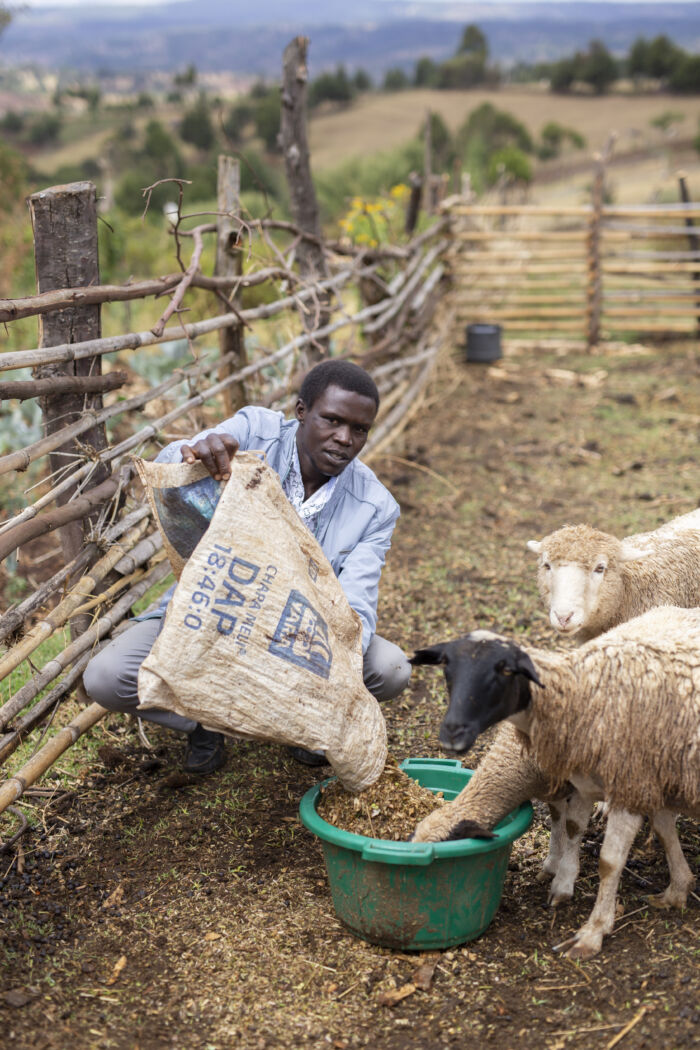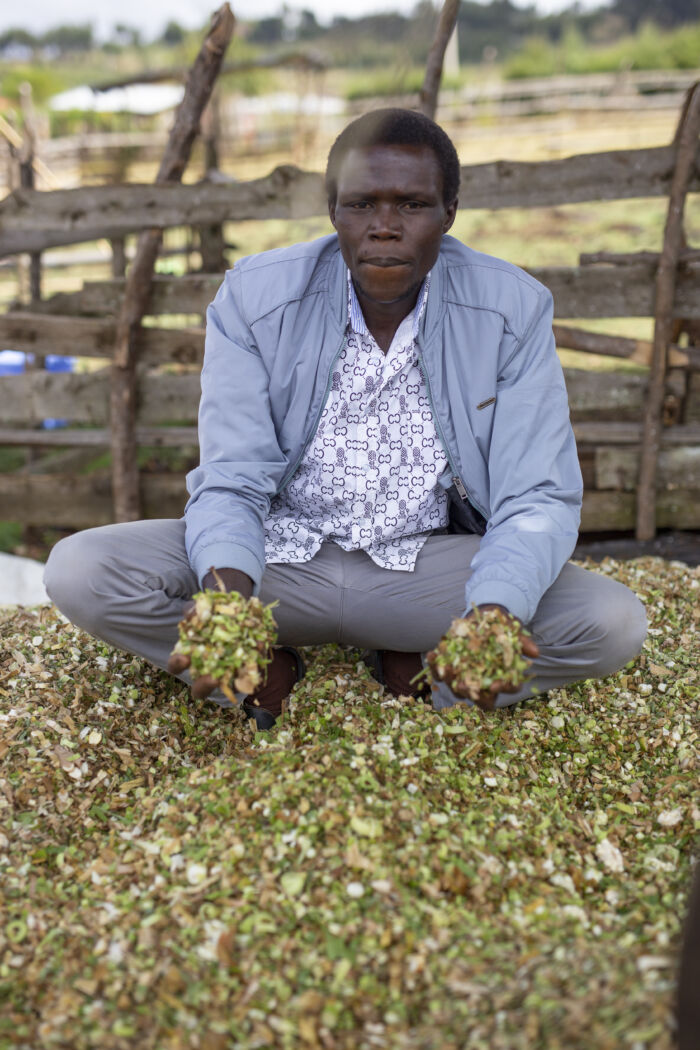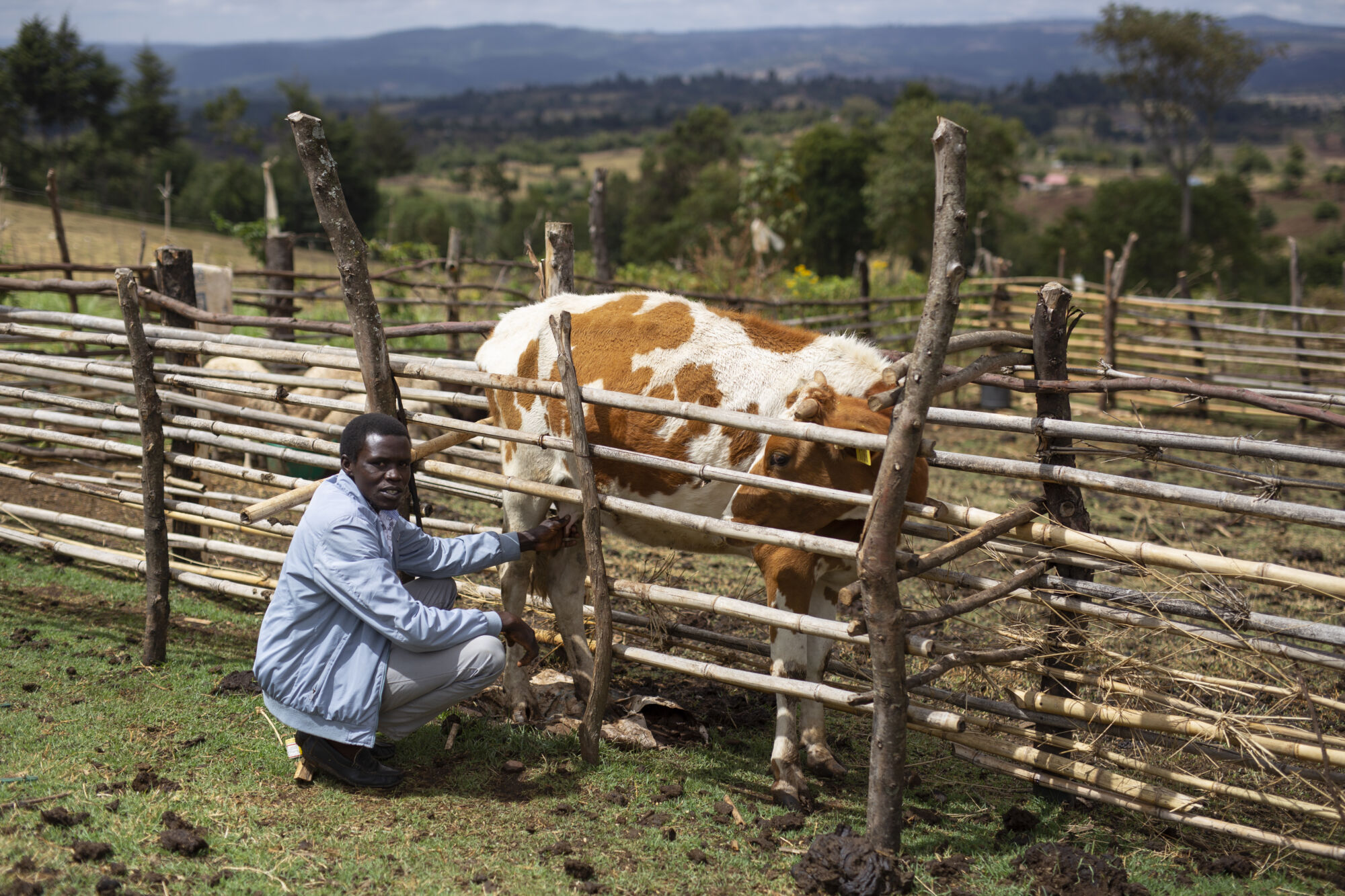
Alvin Cheruiyot, a 30-year-old smallholder farmer based in Baringo, Kenya, is a member of the Baringo Agricultural Marketing Cooperative Union (BAMSCOS). He began his farming journey two years ago, initially focusing on potatoes and fruit trees. Over time, he has expanded the range of activities on his farm and is currently involved in dairy farming, as well as raising poultry and sheep.
Agriculture was not love at first sight for Alvin. He had his sights set on a white-collar job, envisioning himself in the corporate world, comfortably seated in an air-conditioned office with a revolving chair in the bustling city. However, despite graduating with a degree in project planning, job opportunities were scarce, and he found himself financially dependent on his aging parents for some time. This situation left him feeling miserable.
However, he had to reinvent himself quickly, unlock the potential of the agricultural sector, and engage in farming to earn a living.
It compensates against the death of insured livestock due to various perils, namely uncontrollable diseases, including epidemics, calving down, accidents, emergency slaughter on medical grounds, fire, and fire and related perils,” he explains. He is now planning to insure his new sheep and poultry venture.
In Sub-Saharan Africa, Kenya has the third-lowest insurance penetration rate at 2%, with South Africa leading at 17%, according to the Insurance Regulatory Authority (IRA). This low penetration rate can be attributed to ignorance and misconceptions surrounding insurance. The gap is particularly noticeable in the agricultural sector, where agri-based insurance has been slow to gain traction.
This is concerning because climate change has a significant impact on small-scale farmers, both economically and in terms of food security. Farmers often experience crop and livestock losses due to flooding, drought, pests, and diseases.
Insurance protects his livestock and himself against financial losses and gives him peace of mind against these risks. Insurance was an easy option for Alvin, having witnessed his parents lose high-value dairy cows due to fractures, uncontrollable diseases, and complications during birth. One other case was when one of his cows, worth Ksh 50,000, was recommended for slaughter.
Alvin is now fully committed to dairy farming, knowing that he has a safety net that protects against the risk that affects dairy cows. One of his cows is currently producing 12 liters per day and is targeted to produce 30 liters per day.

We Effect, in partnership with BAMSCOS, Co-operative Bank of Kenya and CIC, has trained dairy farmers on available micro-insurance products so that farmers can identify what meets their needs to mitigate losses arising from the effects of climate change.
Alvin plans to venture into sheep rearing, with a specific focus on the Dorper breed from South Africa, as well as poultry farming. Through his agricultural pursuits, he has set a positive example for the youth in his community, encouraging them to explore opportunities in agriculture.

With training support from BAMSCOS, he is also giving back to the community by training farmers on silage making, dairy farm management, and farm production. He appreciates the knowledge gained through the support of We Effect, which has improved livelihoods and enhanced knowledge of dairy farming.

He is hopeful for a bright future in agriculture based on his passion, knowledge, and skills and is happy to be a resource in his community. Additionally, he has established a fallback option by acquiring microinsurance, providing him with a sense of security and protection.
According to the Kenya Agricultural Sector Transformation and Growth Strategy , about 8.6 million smallholder farmers in Kenya represent 4.5m households. The ten-year roadmap aims to leverage agriculture as a means to foster equitable and sustainable growth by generating employment opportunities for rural communities. The agricultural sector continues to be the most significant platform for job creation, particularly for the youth and young people.
We Effect will continue to work with micro insurance providers to improve the enrolments and develop more need based products.
